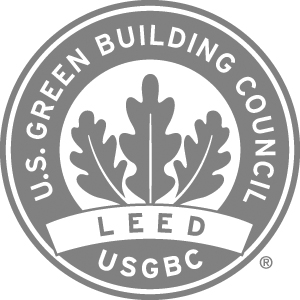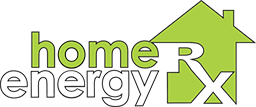LEED For Homes
 LEED for Homes is a national, voluntary certification system that promotes the design and construction of high-performance “green” homes. It seeks to encourage the adoption of sustainable practices by the homebuilding industry.
LEED for Homes is a national, voluntary certification system that promotes the design and construction of high-performance “green” homes. It seeks to encourage the adoption of sustainable practices by the homebuilding industry.
How It Works
LEED for Homes certification requires attaining 18 prerequisites and 67 credits. The 18 prerequisites are mandatory for every project; no points are awarded for prerequisites. Project teams must earn credit points by exceeding the minimum standards of the prerequisites. 136 total points are available in the following eight categories:
- Innovation and Design (ID) Process—emphasizes the importance of design. Integrated Design Process and Durability Planning are vital parts of this process.
- Location and Linkages (LL)—proximity to services and amenities encourages efficient lifestyle and communities.
- Sustainable Sites (SS)—construction site impact, landscaping and pest control.
- Water Efficiency (WE)—promotes efficient use of water, indoor and outdoor. WaterSense is an optional pathway for WE credits.
- Energy and Atmosphere (EA)—requires minimum performance of ENERGY STAR for Homes.
- Materials and Resources (MR)—material efficient framing, environmentally preferable products, and waste management.
- Indoor Environmental Quality (IEQ)—ventilation, moisture, contaminant control, and other factors affecting indoor air quality.
- Awareness and Education (AE)—education of the homeowner (owner’s manual).
Achieving the minimum required LEED features results in a house that is Certified. By qualifying for more credits, a project may be certified as Silver, Gold or Platinum. This encourages innovation and achievement and gives recognition to projects that attain excellence.
Benefits of LEED for Homes
LEED homes are built to be healthy, with clean indoor air and use of safe building materials to result in a livable, comfortable home. By using less water and energy, monthly utility bills will be lower. In many markets across the country, LEED certified homes are selling more quickly and for more money than similar standard homes.
A notable benefit of LEED is the front-end design and construction process. Homes are complex, with numerous subcontractors. By focusing on the roles of each subcontractor, specifically calling out their responsibilities in the plans, and enhancing communication among all stakeholders, mistakes are minimized, and important details are more likely to be addressed.
Our Role
A Project Team and Verification Team are essential parts of any LEED for Homes project. Typical possible members of the Project Team are the homeowner, architect, general contractor, heating and air contractor, landscape architect, LEED professional, etc. The Project Team is responsible for all design aspects, selecting LEED credits, communicating with subcontractors, assuring that all credits are properly documented, and communicating with the Verification Team.
Home Energy Rx serves as the local part of the Verification Team. We have LEED Green Raters on staff to perform all verification and testing required for LEED certification. We can also provide answers to questions you may have about the LEED Rating System.
Pricing
Our involvement in LEED projects is more extensive than for other certifications, so the cost is higher. It also varies with size and location of the home, as well as the level of certification desired. Contact us for a specific quote.
What is LEED?
LEED is Leadership in Energy and Environmental Design, a sustainable building certification program developed by the U.S. Green Building Council (USGBC). USGBC is comprised of 76 chapters, 13,000 member companies and organizations, and more than 181,000 professionals with LEED credentials. By encouraging innovation in the industry and with their excellent public relations efforts, LEED has set a standard for sustainable, “green” building practices in the residential, commercial and public building sectors.
Contact us today for more information.

